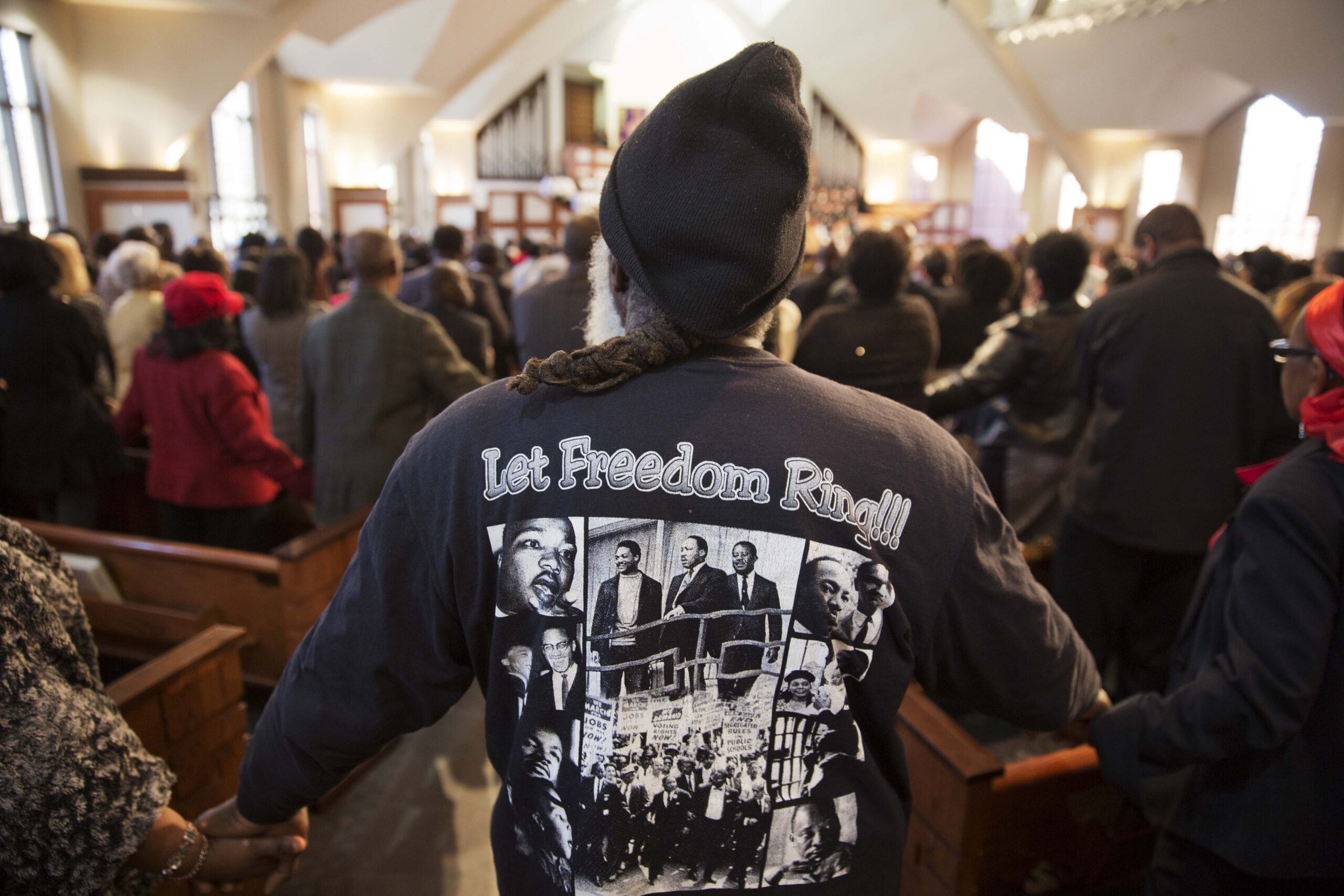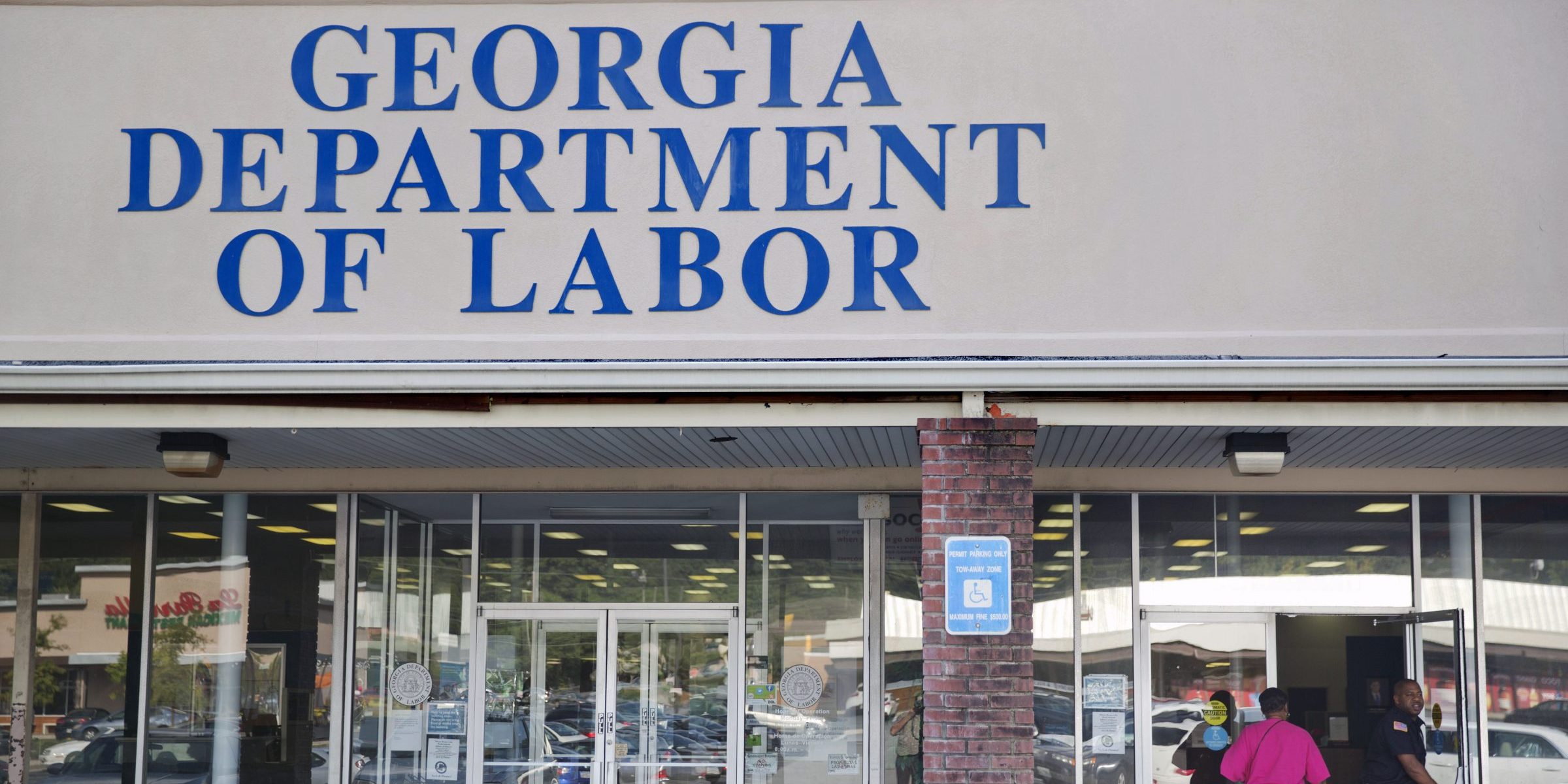Freedom Day Bailouts Get Several Men Behind Bars Out Before Father’s Day

Members of Ebenezer Baptist Church hold hands during a service in 2015. The chruch in connection with the grassroots bailout organization, The Love Project 404, made it possible for some men behind bars to spend Father’s Day 2020 at home.
David Goldman / Associated Press
Atlanta’s historic Ebenezer Baptist Church, in connection with the grassroots bailout organization, The Love Project 404, made it possible for some men behind bars to spend Father’s Day 2020 at home.
Since its inception three years ago, the Freedom Day Bailout has raised enough money for dozens — many who are in need of treatment or rehabilitation — to make bail. Organizers told “Morning Edition” host Lisa Rayam that 10 men made it out of Fulton and DeKalb jails on Friday to see their families.
Ebenezer’s social justice chair, Tiffany Roberts, said this time around had special meaning in wake of the shooting death of Rayshard Brooks by Atlanta police; Ahmaud Arbery, who was shot and killed by armed white men near Brunswick, Georgia; and ongoing protests over police violence nationwide.
“We understand that state violence exists on a continuum,” Roberts said.
“So it’s not just when someone is killed that we should be concerned, but we should be concerned about the entire system that says to black men, and black people in general, that they are criminals.”
The way that black people are treated in the justice system, Roberts believes, is by design. Ebenezer and Love Project 404 are working to collect money for various projects like the Freedom Day Bailout.
It’s no accident the bailout falls on Juneteenth – which recognizes when the last enslaved African Americans deep in Confederate territory in Galveston, Texas, were told they were free. Months after Confederate General Robert E. Lee surrendered in Virginia, Union General Gordon Granger rode into Galveston, Texas, to announce that the Civil War had ended. The Emancipation Proclamation by President Abraham Lincoln had been issued in 1863, more than two years earlier.
Many African Americans see Juneteenth as a true day of independence, according to historian Nicole Moore, Director of Education at the National Center for Civil and Human Rights.
“News traveled slowly, and you didn’t have Union occupation in farther states to really enforce it,” Moore said.
She looks at the Emancipation Proclamation as a start, but said people don’t really understand all of the details of that document.
“It only freed those held in enslavement in the rebellious states, the Confederate states. And not everybody was freed by it,” she said.
Today, she said, we are still fighting for that enforcement of equal rights.
“We celebrate freedom, we celebrate liberation, but we also recognize that there’s so much work that still has to be done.”
For a deeper exploration of Ahmaud Arbery’s story, listen to WABE’s podcast, “Buried Truths.” Hosted by journalist, professor, and Pulitzer-prize-winning author Hank Klibanoff, season three of “Buried Truths” explores the Arbery murder and its direct ties to racially motivated murders of the past in Georgia.








